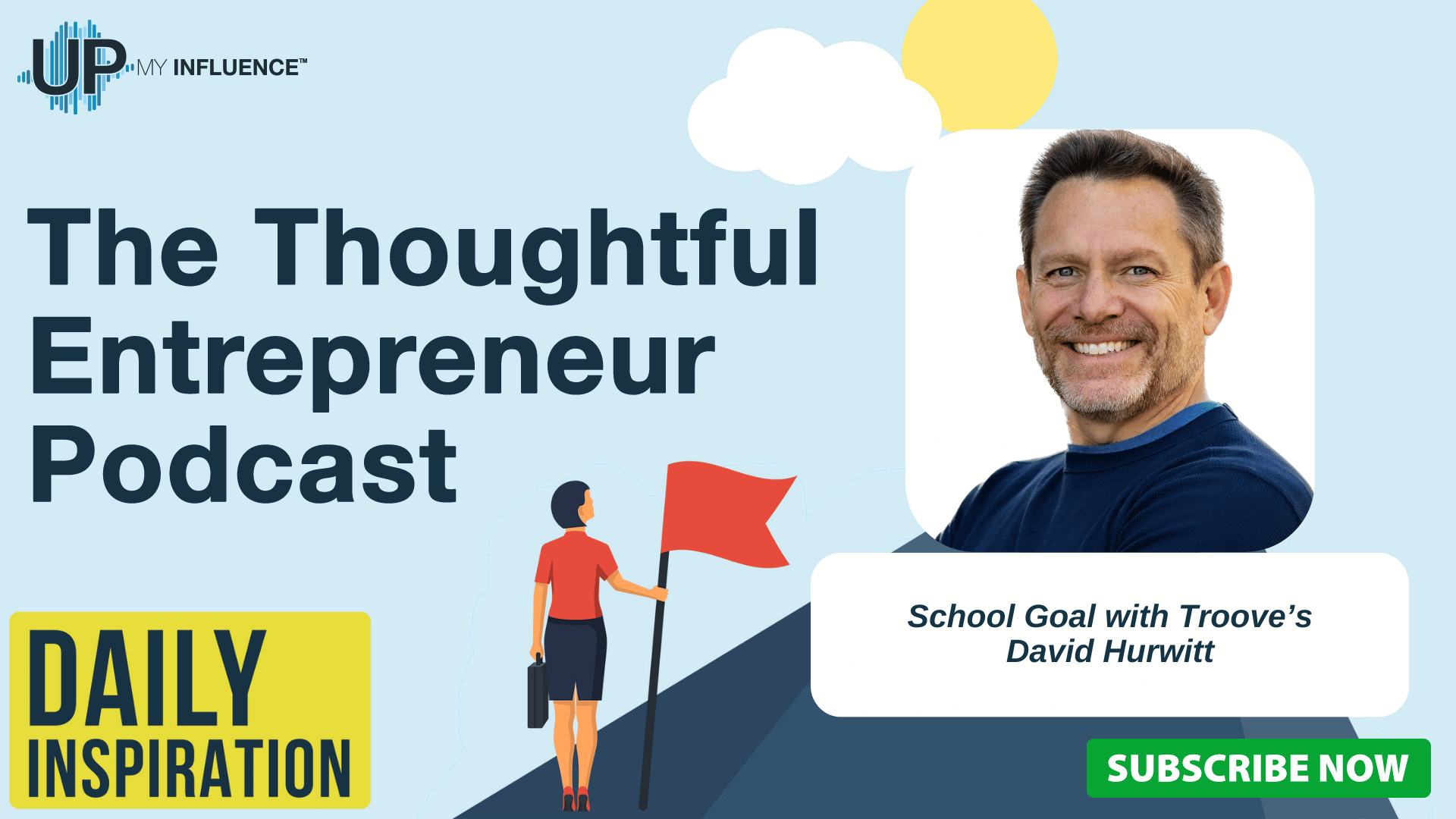THE THOUGHTFUL ENTREPRENEUR PODCAST
In this episode of the Thoughtful Entrepreneur, your host Josh Elledge speaks with the Founder & CEO of Troove, David Hurwitt.

Dave Hurwitt, the founder and CEO of Troove, shed light on the glaring problems with the current college admissions process and how his platform aims to revolutionize it.
Dave highlighted the inefficiencies and shortcomings of the current system, where a staggering 51% of students still need to graduate from their initial college choice. He pointed out the outdated methods colleges use to reach prospective students, such as junk mail and college fairs. With decreased students and the shift to digital administration of standardized tests, colleges face significant challenges in the coming years.
Dave emphasized the high costs associated with student acquisition and the ineffectiveness of traditional marketing tactics. He believes that colleges should focus on the goal of graduation rather than just enrollment.
They aim to address these issues by analyzing the characteristics and conditions that lead to student success and matching incoming first-year students with colleges that align with their needs. They also provide a platform for colleges to connect with potential students who fit their culture well.
Dave argues that a shift in mindset and approach is necessary in college admissions. Colleges can improve their outcomes by focusing on long-term success, utilizing a more targeted and efficient system, and providing better value for students and institutions.
Key Points from the Episode:
- Problems with the current college admissions process
- Inefficiencies and shortcomings of the current system
- Outdated methods used by colleges to reach prospective students
- Challenges faced by colleges in the coming years
- High costs associated with student acquisition
- Shift in focus from enrollment to graduation
- How Troove analyzes characteristics and conditions for student success
- Matching incoming freshmen with colleges that align with their needs
- How Troove helps students find the right college fit
About David Hurwitt:
Dave Hurwitt is a distinguished innovator with a remarkable track record in product development and innovation, generating over $1 billion in sales across various industries.
Notably, he played a pivotal role in revolutionizing the washing machine market in the United States as part of the Whirlpool team. Their reimagining of front-loading washers led to a significant market share increase, saving billions in energy and water consumption.
Based in Burlington, Vermont, Dave embarked on his journey to create Troove with his wife and Golden Retriever. His experience in college admissions and the need for technological advancements in the college search process inspired him to establish Troove—a two-sided, AI-powered platform aimed at helping students discover their college passions and pathways to graduation.
Beyond his entrepreneurial pursuits, Dave is an accomplished photographer, history enthusiast, and avid traveler. Having explored nearly every U.S. state and numerous countries worldwide, his passion for human interaction and blending tradition with innovation shines through in his photography and innovative product creations.
About Troove:
Troove is a groundbreaking software company that aims to revolutionize higher education selection by leveraging collective experience's predictive power. In various aspects of life, we rely on the experiences of those who have gone before us to make informed decisions, be it choosing a restaurant, employer, or neighborhood. However, this valuable resource has often been overlooked when selecting a college.
Troove recognizes that millions have already attended various colleges, experiencing successes and failures. The key question is, what can their combined experiences tell prospective students about their likelihood of success and happiness at a particular institution?
Troove utilizes cutting-edge data science and machine learning tools to extract insights from graduate experiences and match them with current applicants' values, abilities, priorities, and ambitions.
Troove provides applicants with Learning Culture and Social Culture fit scores through a brief questionnaire, clarifying how well they align with past graduates and the institution's offerings. This data-driven approach eliminates the guesswork, helping students find their ideal college environment, peers, and even their preferred course of study and career path.
Tweetable Moments:
09:11- “Your goal when an amazing restaurant opens up is not to secure a reservation, the goal is to enjoy a wonderful meal.”
Apply to be a Guest on The Thoughtful Entrepreneur:
https://go.upmyinfluence.com/podcast-guest
Links Mentioned in this Episode:
Want to learn more? Check out Troove website at
Check out Troove on LinkedIn at
https://www.linkedin.com/company/trooveme/
Check out Troove on Facebook at
https://www.facebook.com/www.troove.me
Check out Troove on Instagram at
https://www.instagram.com/troove.me/
Check out Troove on Twitter at
Check out David Hurwitt on LinkedIn at
https://www.linkedin.com/in/davehurwitt/
Check out David Hurwitt on Twitter at
https://twitter.com/DaveHurwitt
Don’t forget to subscribe to The Thoughtful Entrepreneur and thank you for listening. Tune in next time!
More from UpMyInfluence:
We are actively booking guests for our The Thoughtful Entrepreneur. Schedule HERE.
Are you a 6-figure consultant? I’ve got high-level intros for you. Learn more here.
What is your #1 Lead Generation BLOCKER? Take my free quiz here.
Want to learn more about all the podcasts managed by UpMyInfluence? Opt in here.

